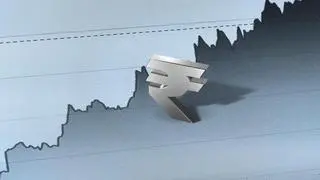If history is any indicator of the future, the first two weeks of July could bring relief to investors after a bruising first half of the year.
World stocks have shed more than $20 trillion (1 trillion ~ 1 lakh crore) in value since hitting record highs in January.
Most major markets are firmly entrenched in bear market territory as policymakers struggle to check soaring inflation without crushing fledgling growth.
However, half-month price changes since 1930 figures show that the first two weeks of July have historically offered the best returns of the year for S&P 500 investors.
After three consecutive quarters of declines for S&P 500 stocks, with the index declining 20 per cent since the beginning of the year, some investors said they are ready to buy the dip. The S&P 500 has edged up 0.16 per cent so far this month.
While volatility continues to be a drag for global stocks, a JP Morgan survey showed two-thirds of investors are likely to increase their equity exposure in July.
History offers grounds of short-term hope amid a bleak backdrop for stocks, said Paul O’Connor, head of multi-asset at Janus Henderson Investors.
"We see record shorting, we see a really big equity rebalancing happening, probably... in Europe and the US naturally just rebalancing because we've had such a big drop in equities," he said.
In the last week of June, another $5.8 billion left global equities, with outflows from developed stock markets outpacing emerging markets, figures from BofA showed.
No place to hide
The first six months of the year were brutal for investors. Goldman Sachs analysts said a 60/40 portfolio strategy, which follows a standard portfolio technique of keeping 60 per cent of its assets in equities and 40% in fixed income, posted its worst first-half return since 1932, declining 17 per cent.
UBS suggested using the equity sell-off and volatility to selectively build longer-term positions.
In a high inflation environment, the Swiss bank said value stocks including energy and the UK equities could continue to outperform, especially if confidence rises that corporate earnings can stay resilient.
But markets participants advise caution, anticipating a stormy few months ahead for risk assets, amid rising interest rates and economic growth concerns.
Recession fears, rising cost of living keeping consumers wary, while a surge in natural gas prices and a slew of economic indicators have reignited worries about the health of the global economy.
"The problem is if we look beyond that (fortnight window) things do look tricky," O'Connor said. His team will be using any seasonal potential rise in July to sell into the rally.
Both UBS and Goldman Sachs recommended building up defences against a potential economic slump, which would see corporate profit expectations weaken.






Comments
Comments have to be in English, and in full sentences. They cannot be abusive or personal. Please abide by our community guidelines for posting your comments.
We have migrated to a new commenting platform. If you are already a registered user of TheHindu Businessline and logged in, you may continue to engage with our articles. If you do not have an account please register and login to post comments. Users can access their older comments by logging into their accounts on Vuukle.